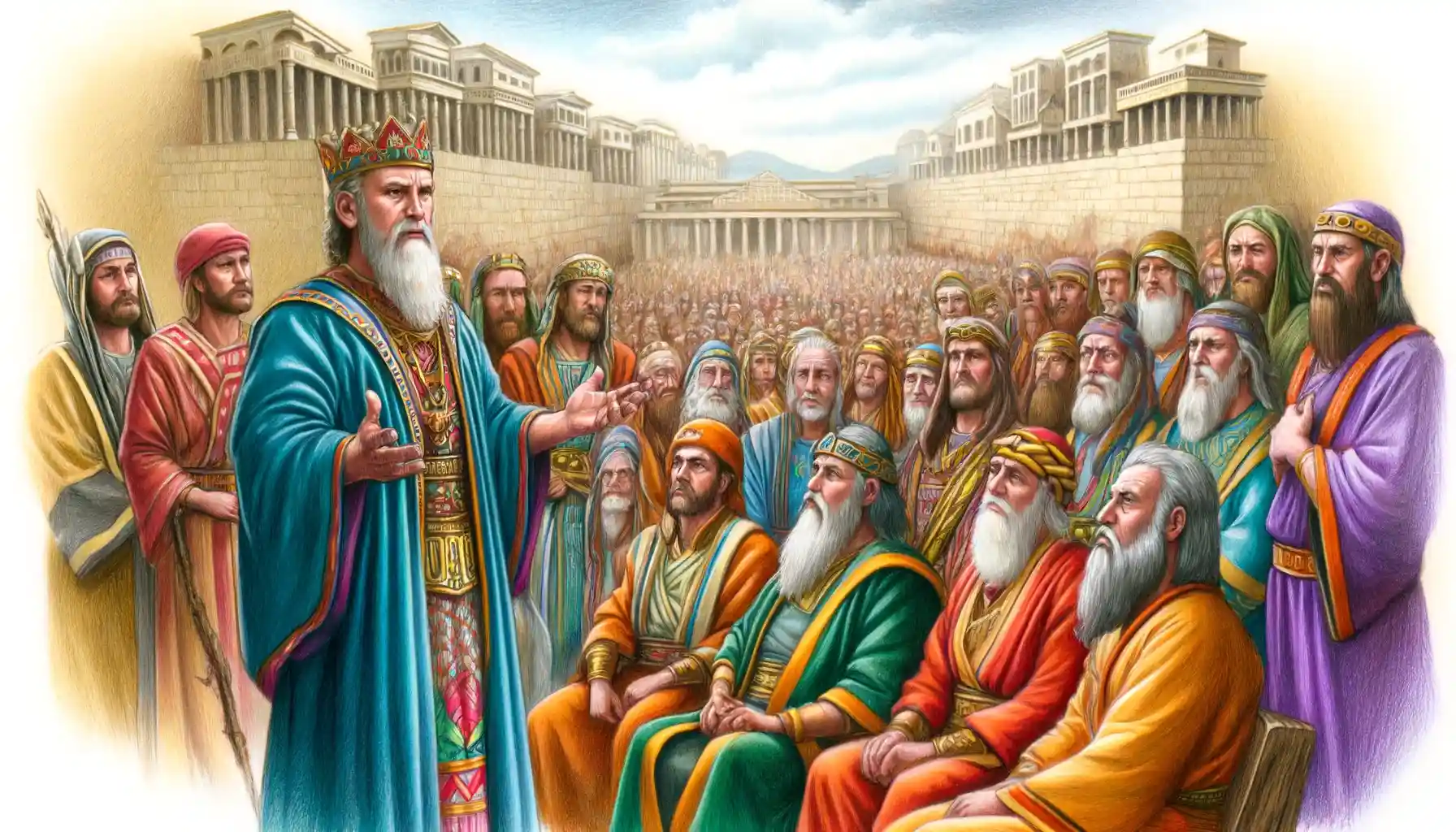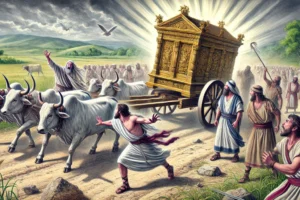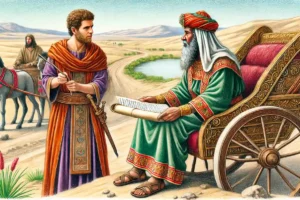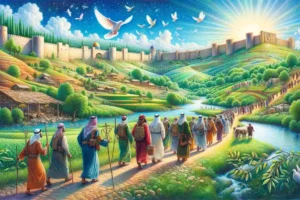
The Division of the Kingdom
The Division of the Kingdom, as recorded in 1 Kings 12:1-24, marks a pivotal moment in the history of Israel. Following the death of King Solomon, his son Rehoboam’s harsh leadership led to the secession of the northern tribes, forming the Kingdom of Israel under Jeroboam, while the southern tribes remained loyal to Rehoboam, establishing the Kingdom of Judah. This momentous split, influenced by divine prophecy, set the stage for the complex and often tumultuous relationship between the two kingdoms.
Quick Facts:
- Event Background: The division occurred after the death of King Solomon, leading to the separation of the United Kingdom of Israel into two distinct kingdoms.
- Key Figures: Rehoboam, Solomon’s son, and Jeroboam, a former official of Solomon, played crucial roles in the division.
- Location: The pivotal events took place in Shechem, where Rehoboam was to be crowned.
- Tribal Discontent: The northern tribes were unhappy with Solomon’s heavy taxation and labor demands and sought relief from Rehoboam.
- Elders’ Advice: The elders advised Rehoboam to lighten the burdens imposed by his father to win the people’s loyalty.
- Rehoboam’s Decision: Rehoboam rejected the elders’ advice, opting instead to follow the harsh counsel of his younger advisors.
- Public Reaction: Rehoboam’s harsh response led the northern tribes to reject his rule, declaring, “What share do we have in David?”
- Formation of Two Kingdoms: The northern tribes formed the Kingdom of Israel under Jeroboam’s leadership, while Rehoboam ruled over the Kingdom of Judah.
- Divine Will: The division was seen as a fulfillment of God’s prophecy given through Ahijah the Shilonite due to Solomon’s idolatry.
- Attempts at Reconciliation: Rehoboam initially planned to use force to reunite the kingdoms, but heeding the prophet Shemaiah’s message from God, he refrained from attacking Israel.
The division of the united monarchy under Solomon’s reign marks a significant turning point in the history of Israel. Rehoboam, Solomon’s son, ascends the throne and faces an immediate challenge from the northern tribes, led by Jeroboam. These tribes, aggrieved by Solomon’s heavy taxes and forced labor policies, request relief from Rehoboam. The young king consults his advisors, receiving conflicting counsel from the elders and his peers.
The elders, with their wisdom, suggest leniency and understanding, proposing that Rehoboam should ease the burdens to secure the loyalty of the people. However, the younger advisors advocate for a show of strength and increased harshness. Rehoboam, disregarding the elders’ prudent advice, adopts a more oppressive stance, which alienates the northern tribes, leading to their rebellion.
This rift results in the division of the kingdom: the ten northern tribes anoint Jeroboam as their king, establishing the Kingdom of Israel, while Rehoboam retains control over the southern tribes, forming the Kingdom of Judah. The division not only reflects a political and social upheaval but also fulfills the prophecy delivered by Ahijah the Shilonite, who foretold the division as a consequence of Solomon’s idolatry and departure from following God’s commandments.
Rehoboam’s initial intent to reunite the kingdoms through military force is thwarted by divine intervention. The prophet Shemaiah conveys God’s command to Rehoboam, instructing him to desist from fighting against his brethren, acknowledging the division as God’s will. This divine directive underscores the theological theme that God remains sovereign over the affairs of nations, orchestrating events to fulfill His purposes despite human actions.
The Division of the Kingdom sets the stage for the subsequent narratives of conflict, idolatry, and prophetic ministry that characterize the histories of both Israel and Judah, emphasizing themes of faithfulness, divine judgment, and redemption that permeate the biblical text.



